If sugar is killing us, why does Britain farm so much of it?
After the anniversary of the sugar tax on soft drinks, Emily Clark looks at how the sugar beet industry affects the health of humans – and soil too

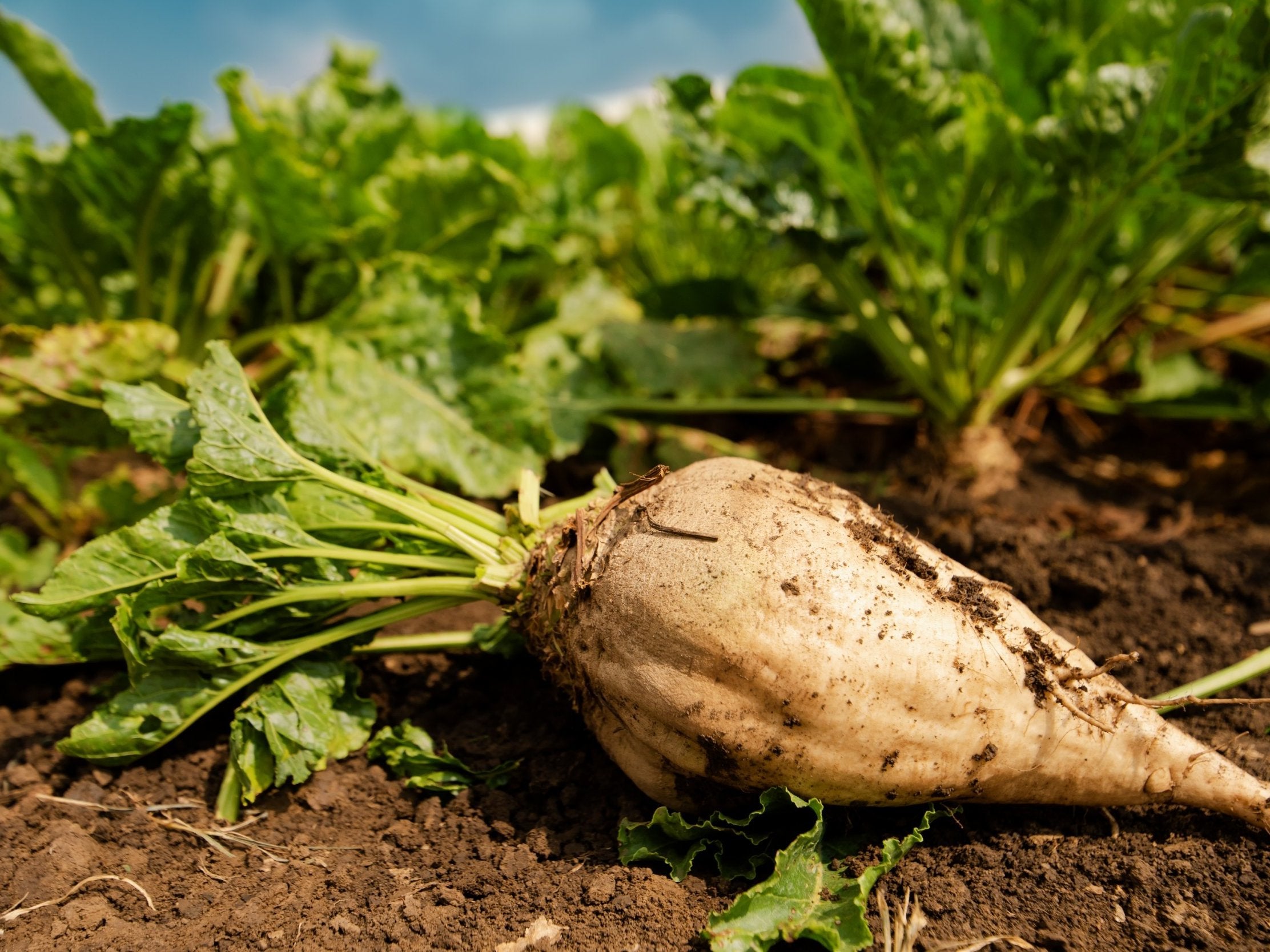
It seems drastic to link a packet of Percy Pigs to the death of all life on Earth as we know it. And largely, it is – most species would thrive as soon as humans were off the scene. However, our addiction to sugar really could be perilous – just maybe not for the reasons you think. This isn’t just about the global obesity crisis or type 2 diabetes. This is about a sickness in the nutrient-rich bit of planetary crust that we call topsoil, which campaigners say is caused in part by our sweet tooth.
Topsoil is the first few inches of soil in which we grow our crops. We’ve been using it to cultivate food for at least 12,000 years, and as per humanity’s fondness for self-sabotage, we have made good progress in destroying it.
British topsoil has only 30 to 40 years of fertility left, or so says environment secretary Michael Gove. The UN, meanwhile, predicts that every single crumb of topsoil in the world could be degraded in 60 years if we carry on as we are – spraying it with all manner of toxic chemicals, squashing it down with heavy machines until it can’t breathe, or else churning it up so that it washes away in the rain.
It can take millennia to build an inch of topsoil… and we’ve lost half of the total in the past 150 years, says the WWF.
The charity Feedback is now campaigning against the farming of sugar beet in the UK, saying it is a “poster crop” for degrading topsoil. It says sugar beet farmers extract 300,000 tonnes of topsoil from Britain’s most fertile fields during the beet harvest – which could account for a 10th of the country’s annual topsoil loss.
Why are we farming sugar beet? So we can extract a nutrient-deplete energy source – sucrose. This is your average white table sugar, which we pack like crack-addled addicts into our sweets, soups, ketchup, bread, yoghurts and baby’s rusks. They even put it in Bran Flakes, though they still taste like cardboard.
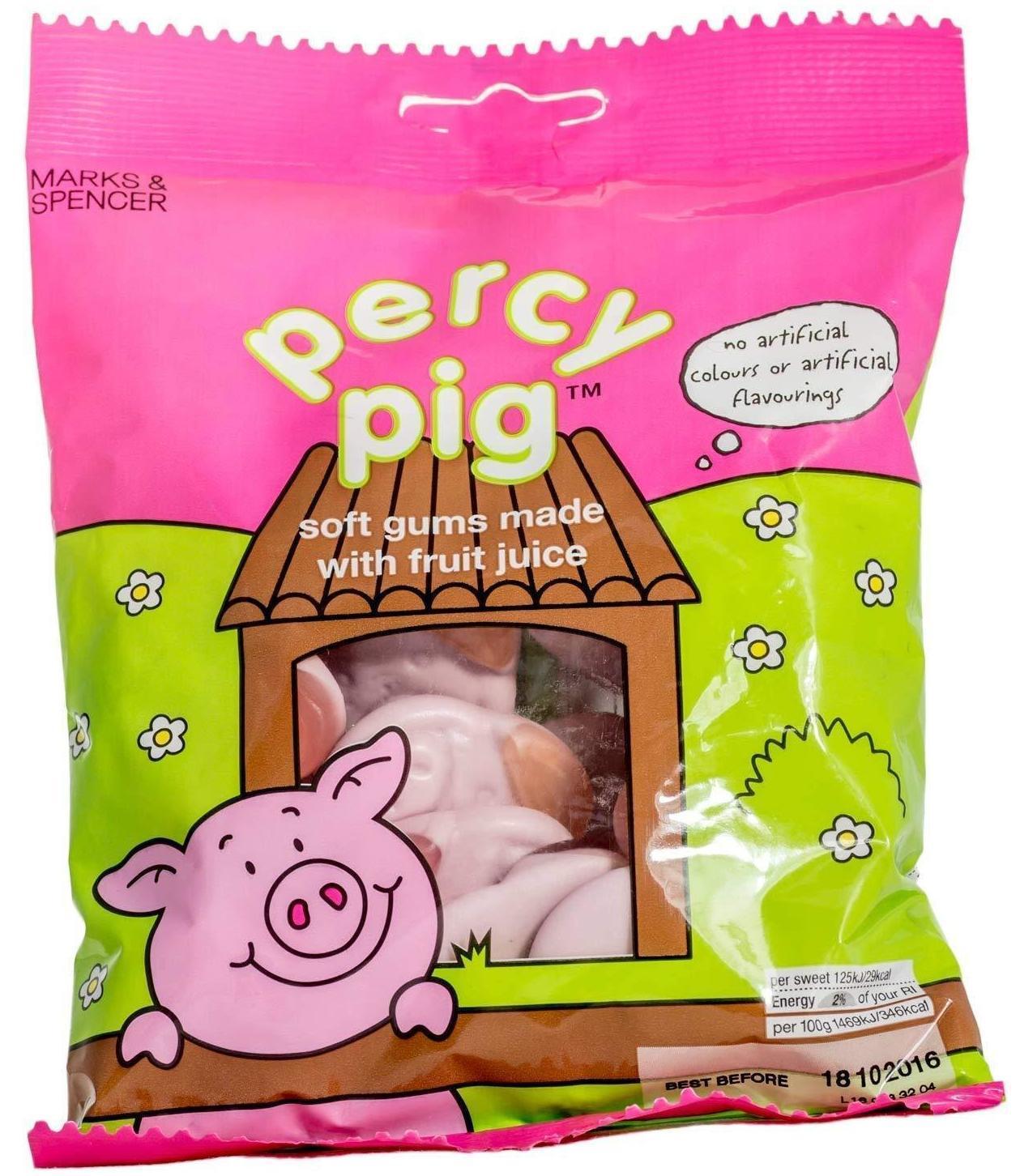
Some argue it’s unwise to demonise food groups for our health crises, tempting as it may be when diabetics are being amputated and a quarter of children are reported as being overweight or obese. Just this week, a study in The Lancet warned against the sugar and fat debate, saying the focus needed to be on the “poor quality” diets that cause the early death of 11 million people around the world every year. The problem in the UK, according to authors behind the Global Burden of Disease study, is a lack of whole grains, fruit, vegetables, nuts and seeds in our diets. However, the scientists did also point the finger at fizzy drinks.
Sugar has become enough of a worry for the government to act. One year ago on Saturday, a law was brought in to tax soft drinks firms if sugar content exceeded 5g per 100ml, affecting Coke, Red Bull and Irn-Bru among others.
The government says the tax “resulted in over 50 per cent of manufacturers reducing the sugar content of drinks … the equivalent of 45 million kg of sugar every year”.
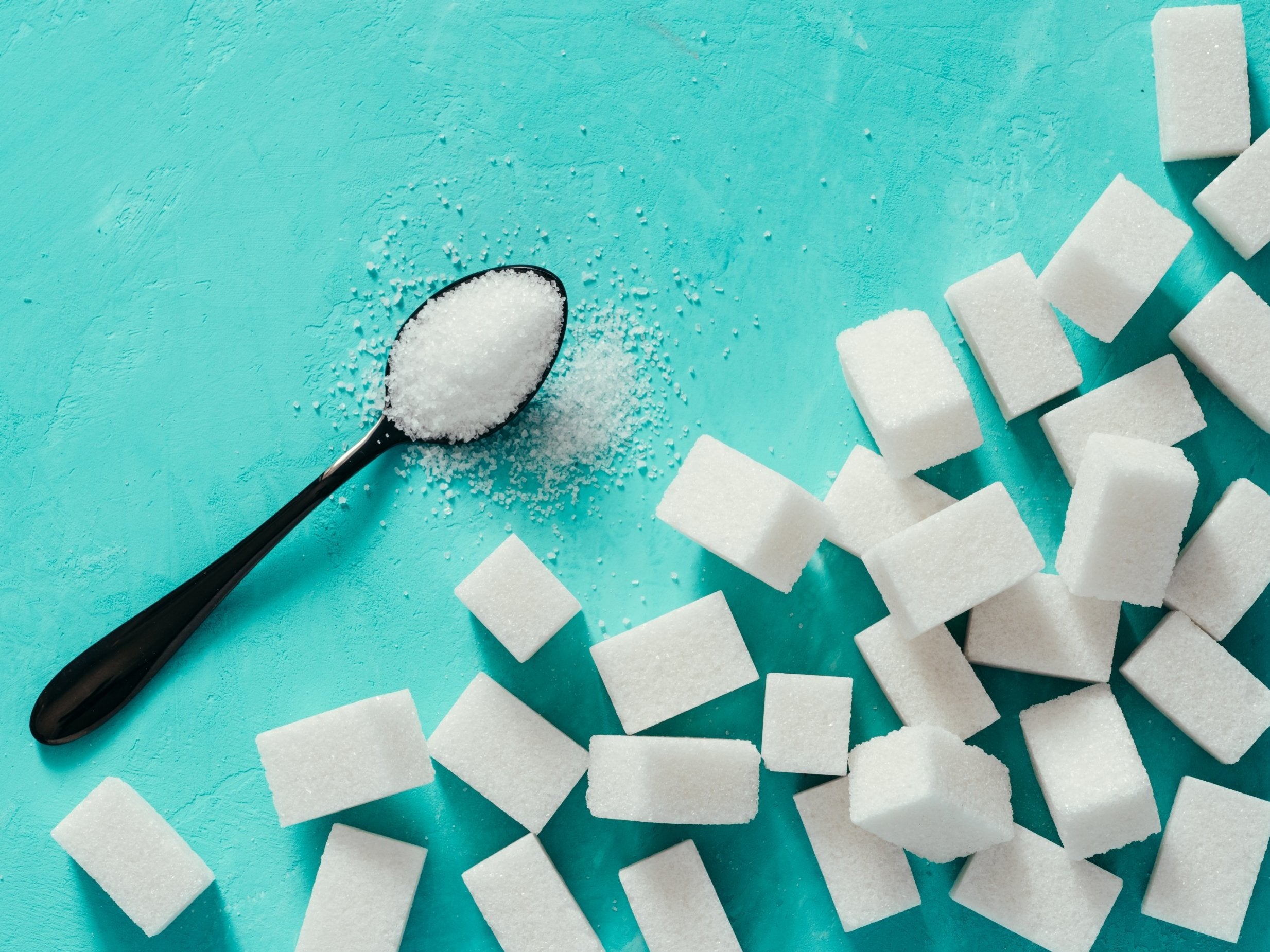
It’s a great start, but we still have a way to go. Sugar should account for no more than 5 per cent of our daily calorie intake, according to government targets. Achieving this target would require a two-thirds reduction in the average diet.
The NHS spent £6.1bn on overweight and obesity-related illness in 2014-15, according to official estimates. That’s more than the amount spent on police, the fire service and the judicial system combined. Have we lost bobbies to the beet?
110,000
hectares of sugar beet farming land in England
So it’s time to dig a little deeper. Not literally. Sugar beet is not just damaging us but it could be harming our land too – and with it, the ability to feed ourselves. It’s not well known, but Britain grows enough sugar beet for half of our own sugar demand.
There are 110,000 hectares of land in England, mostly in East Anglia, dedicated to growing it – the largest proportion of any country. All of Britain’s 3,500 sugar beet farmers sell their crop to one company – British Sugar. This company is part of AB Sugar, which runs similar operations in nine other countries including the United States, China and Spain.
AB Sugar is in turn part of Associated British Foods – which owns the Silver Spoon and Billington’s sugar brands, as well as Twinings, Ryvita, Kingsmill, Patak’s and Blue Dragon. Oh, and Primark.
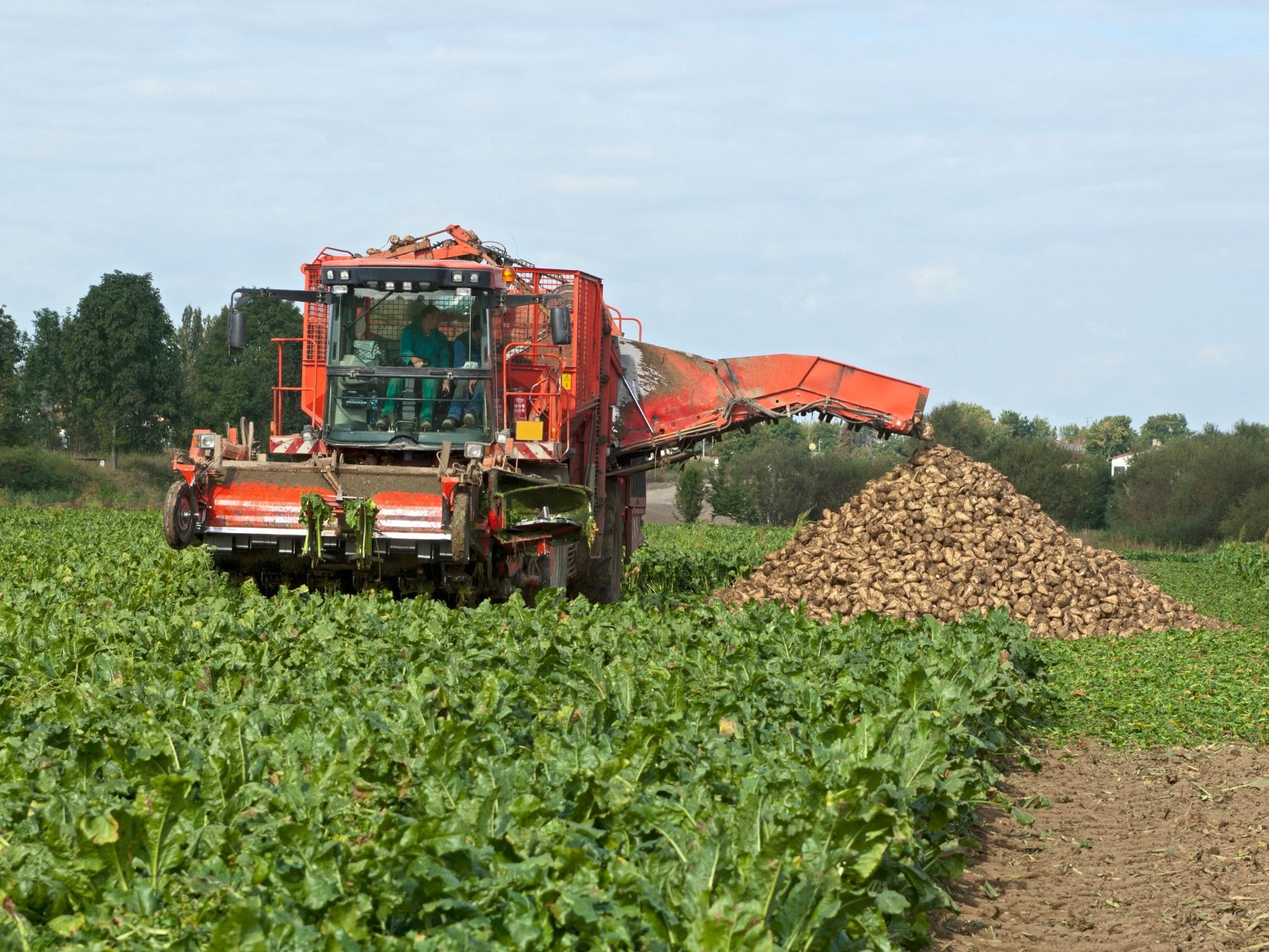
Harvesting sugar beet causes “approximately 9.1 tonnes of soil loss per hectare”, according to Feedback. The crop is more damaging than others to soil health, the charity says, because it is harvested in autumn, when there is more rain than in summer. “What we’ve heard is that sugar beets are usually harvested in wet conditions and they have very long roots,” says executive director Carina Millstone. “What this means is that when they’re harvested, a lot of the soil comes up at the same time.”
Millstone argues that our land should better reflect our dietary needs. She says: “Places where there’s been extensive farming like East Anglia, where the sugar beets have been farmed for hundreds of years or so, it’s been identified as some of the areas where the soil is the most deplete in the UK – suggesting to us that we should be thinking, what’s the best use of our land? Is it really to be growing an unhealthy crop, and then a crop that involves literally moving land and taking it out of the productive process as well?”
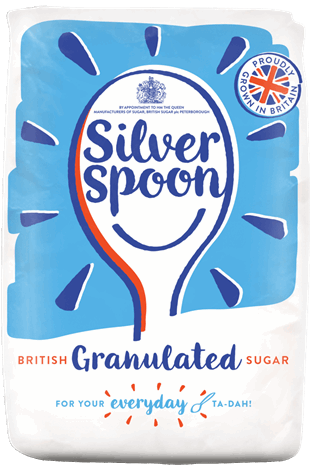
She argues: “I think farmers need to be rewarded for growing their crops well but also for prioritising crops that deliver good nutritional value and are aligned with our public health goals.
“The fact is we need to find ways to produce less sugar. The land that is freed up, what would we do there? It’s arable land, so we’d grow more fruit and vegetables, which we know we’re not consuming enough of in the UK.”
What particularly surprised Feedback is that British Sugar also prides itself on being the biggest seller of topsoil in the UK – extracted during the sugar beet harvest. It boasts of selling its “sustainable topsoil” from “prime agricultural soils” to sports and landscaping industries under the brand Topsoil. What’s more, British Sugar is planning to grow its Topsoil business.
Speaking to The Independent, British Sugar denied that harvesting a crop in autumn was worse for soil than summer harvests. Its website says sugar beet “often plays a vital role in soil and crop health in the arable farm rotation” and as a “break crop”, it provides a break or a rest from more intensively farmed cereal crops.
It says break crops “provide diversity to help reduce disease, pest and weed levels and improve soil health” and growers “continue to make every effort to remove the soils and leave it in the field”.
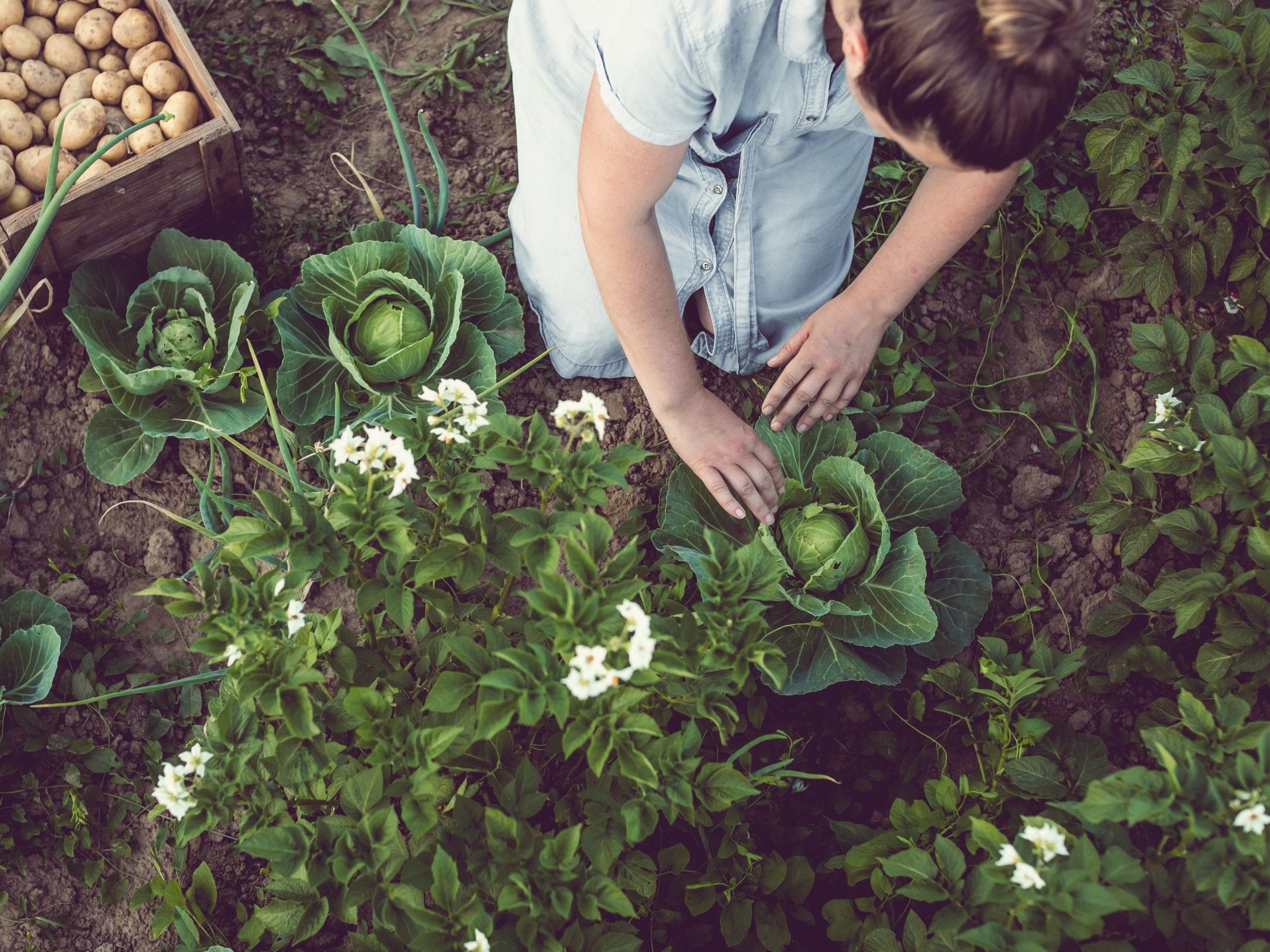
But for Millstone, this isn’t enough. None of Britain’s sugar beet is farmed organically, she adds, although British Sugar did say they were making efforts to reduce the chemicals they use. Millstone says: “The crops are not managed as part of a sustainable nutrient cycle, it’s not enriched. It’s using pesticides that are damaging biodiversity.”
The fact is we need to find ways to produce less sugar. The land that is freed up, what would we do there? It’s arable land, so we’d grow more fruit and vegetables, which we know we’re not consuming enough of in the UK
Even if the land was put to different use, there is every possibility British Sugar could upscale in any of its other countries and continue selling us the same amount of sugar. But there’s also the chance that manufacturing companies responsible for hidden sugar will at some point be encouraged to reformulate their products, as the sugar drinks companies have done.
Sugar beet is just one crop facing scrutiny over its effect on the land. Maize, like sugar beet pulp, is used to produce renewable energy. Some have argued that land should only be used to give us nutritional, varied diets.
This land debate is taking place against a backdrop of what many call the biggest agricultural shakeup since the Second World War – when our mentality was set on the single goal of production.
Yes, this shakeup is thanks to Brexit. How we choose to award subsidies in the post-Brexit countryside will enormously influence farmers. At the moment, under the EU’s Common Agricultural Policy, most subsidies are based on the size of land – regardless of farming methods, quality or quantity of produce.
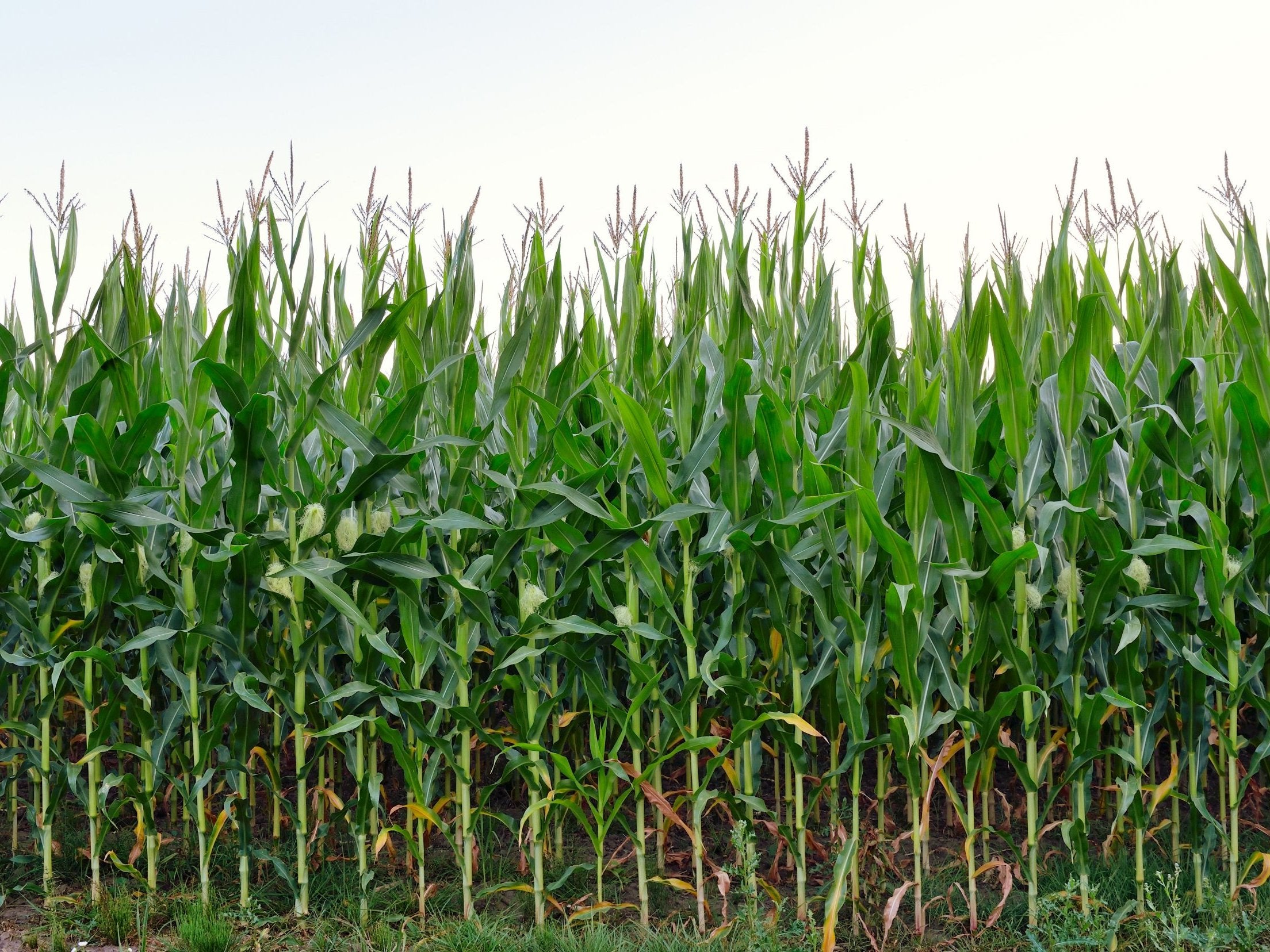
But Gove is heartening environmentalists with his policies, which the Department for Environment, Food and Rural Affairs says will see a “transition to a new system of paying farmers ‘public money for public goods’ – principally their work to enhance the environment and invest in sustainable food production”. The Agricultural Bill passing through parliament broadly outlines plans to reward improved “air and water quality, public access and productivity”.
Under these subsidies, what could happen to the land of sugar? Adrian Steele has some ideas. He’s an organic farmer who is also a policy adviser at the Soil Association, managing 800 acres in the Vale of Evesham. His mixed crop rotation system includes spelt, wheat, rye, oats and vegetables – all for human consumption. He also has “cover crops” – to restore nutrients to the soil. For example, his red and white clover helps take nitrogen from the air and stores it in the ground to help future crops grow. Young cattle also fertilise the land while they graze the clover.
For him, this anti-chemical philosophy is “all about balance, building up soil carbon, feeding the soil not the plants”.
He has experience of growing sugar beet and says the wetter autumn soil can mean “harvesting becomes an exercise which is not pretty to watch”. He says: “There’s going to be variation from one year to the next but there’s a very high risk of soil damage and harvesting with sugar beet in a way that there isn’t with cereal harvests, which take place in the late summer.” Steele notes that maize shares this problem.
He says the answer is agroecological farming – an approach that takes into account the health and ecology of plants, animals, people and the environment. It also uses fewer pesticides. One example is agroforestry, where trees are merged with farmland. The long roots of the trees restore carbon to the soil and bind it, protecting it from wind and rain erosion.
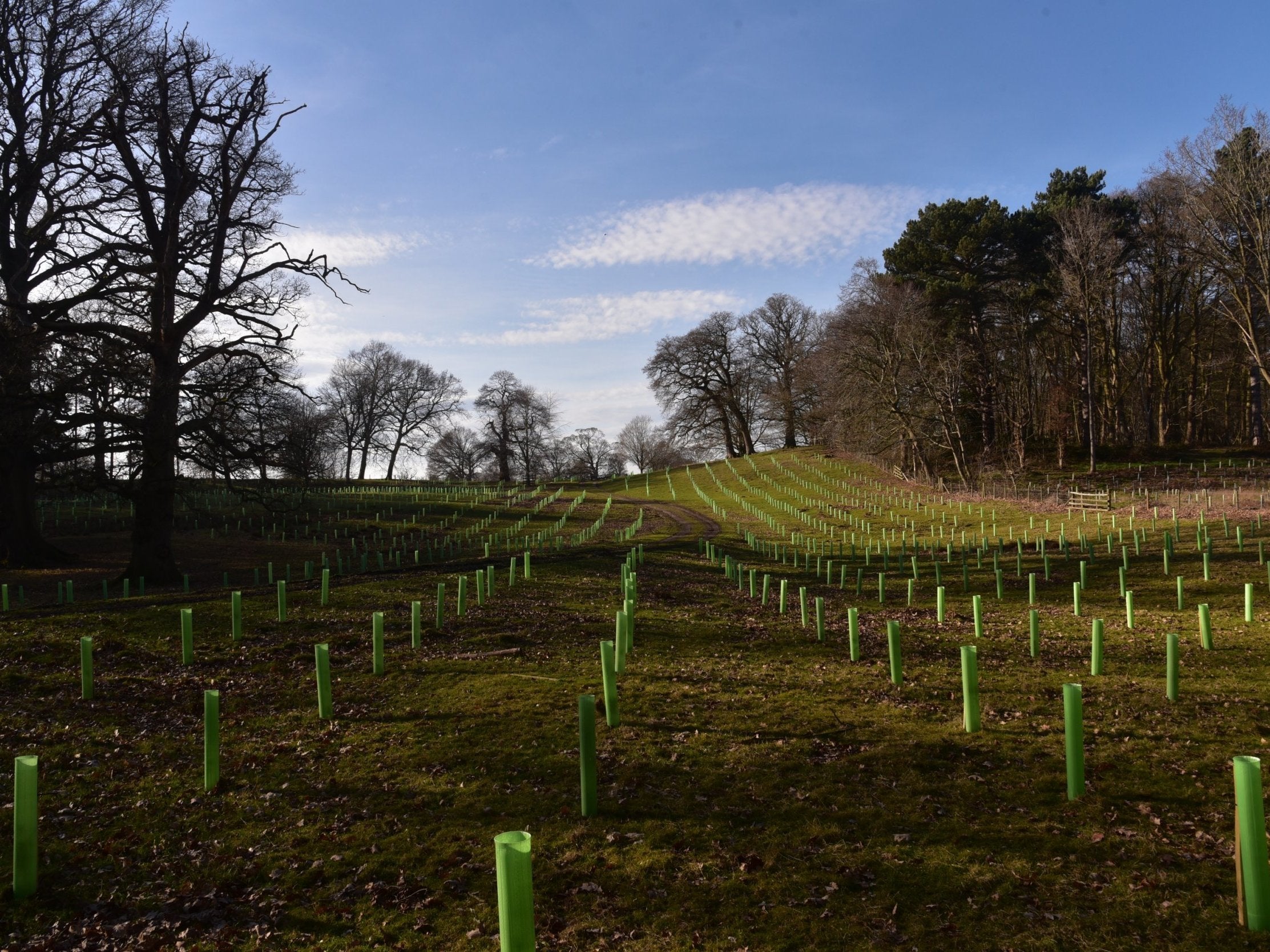
Steele points to a key report by French research institute IDDRI, Ten Years For Agroecology. The study demonstrates that we can feed ourselves perfectly happily using agroecological farming. For it to work, scientists recommend a recalibration of our diets, which they say are “too rich and unbalanced”, and where we eat three times the recommended amount of sugar, double the recommended amount of protein and not enough fruit, vegetables or fibre.
Steele says sugar beet could be grown using the agroecological approach, but “only perhaps within a clearly defined rotation where for instance, if it was an organic rotation, that would include several years of the ground being turned to grass for deep rooting to restore carbon, to restore the life of the ground”.
With the green focus of the post-Brexit subsidies, sugar beet farmers could be rewarded for any measures to increase soil health, reduce the use of pesticides, ensure chemicals don’t leach into watercourses and encourage wildlife.
Steele says environmental organisations have come to realise that the pesticide approach is “simply unacceptable”. However, whether farmers will feel comfortable making drastic changes will remain to be seen. Many worry that trade deals with countries that produce lower quality food more cheaply will undercut their prices. “It’s an extremely stressful time to be farming,” Steele says, noting that, for the first time, there is no lambing season on his farm – he has sold most of his sheep over price fears.
In a perfect vision of England, he sees a public policy reinvigoration of butchers, bakers, mills and abattoirs across the country. Farmers would diversify their farms to sell all manner of grains, wheat, meat, fruit and veg to the local community. In England, Steele says, we have this opportunity because our agricultural land is highly populated – unlike America or even Scotland.
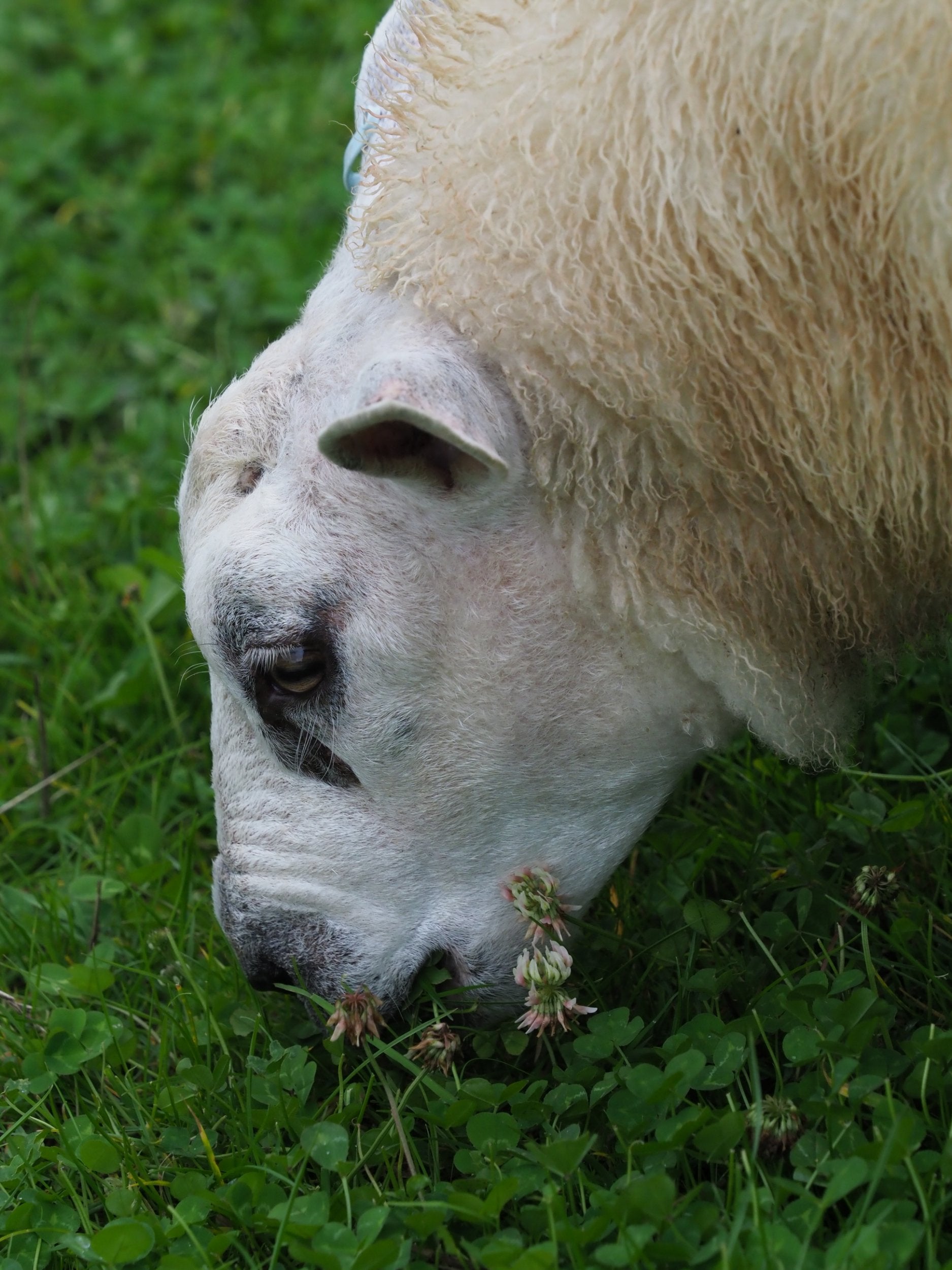
In response to this piece, Michael Sly, chair of the National Farming Union Sugar Board, said: “Farmers and growers have carried out extensive work to benefit soil, such as cover cropping and using new technology like low-impact machinery which ensures a minimum amount of soil leaves the field. The home-grown sugar sector is one of the most productive and efficient sugar producers in the world and farmers limiting their impact on soil is a key part of that.”
British Sugar’s Colm McKay added: “The soil we do receive is not wasted as it is recycled into high-quality topsoil – one of 11 co-products which also include animal feed and electricity. As part of our award-winning circular economy approach, we are constantly looking at approaches to reduce our footprint and impact on the environment.”
Sugar beet farms could be facing huge change in the post-Brexit world – along with the rest of our agricultural land. So you can keep your packet of Percy Pigs for now – but when the day comes that we leave the EU, you might just have to trade it in for a big, juicy organic British pear from an agroforestry system instead.
Join our commenting forum
Join thought-provoking conversations, follow other Independent readers and see their replies
Comments